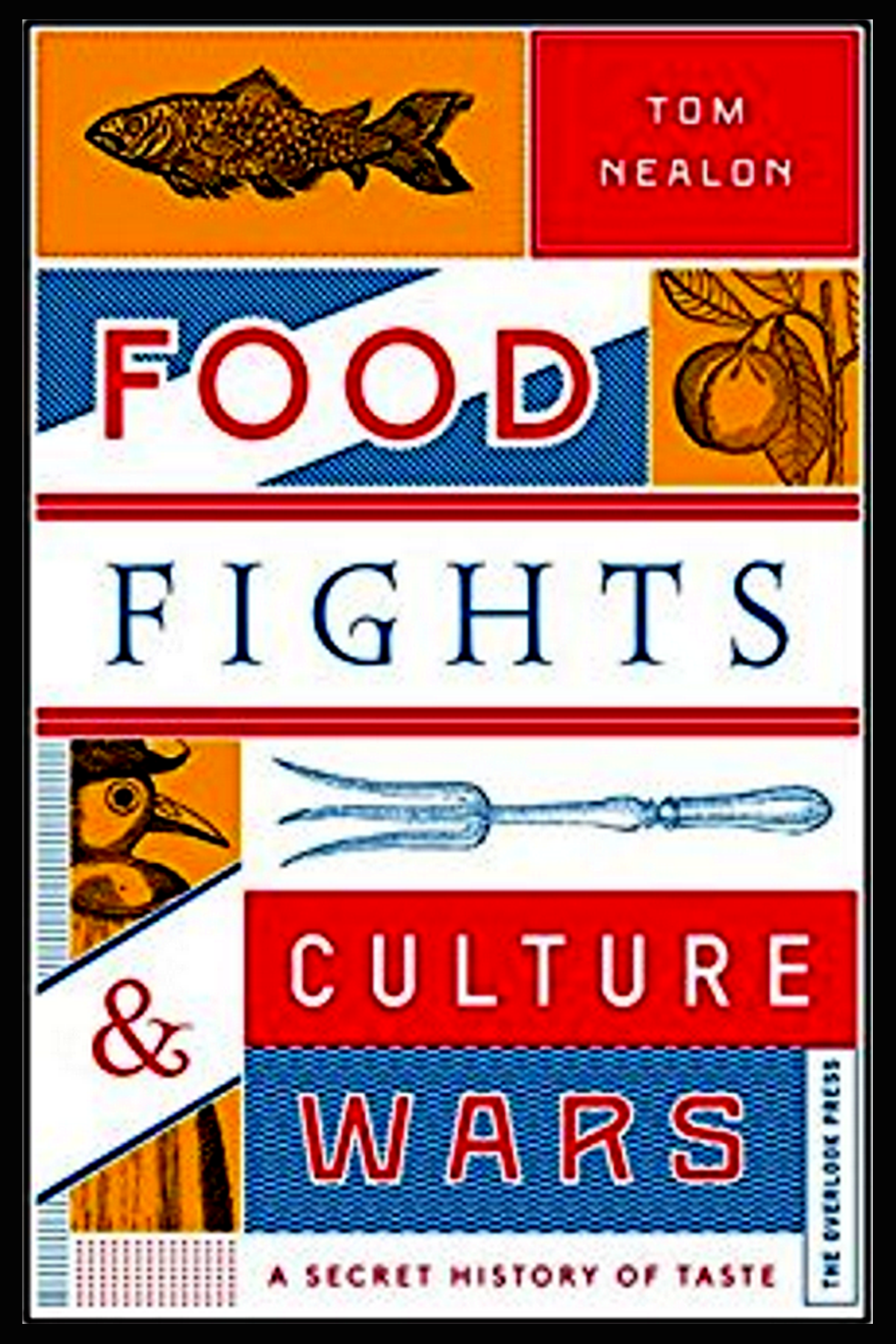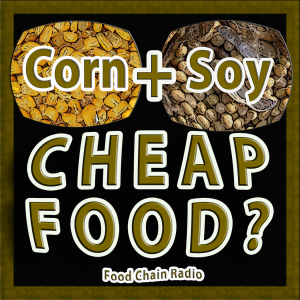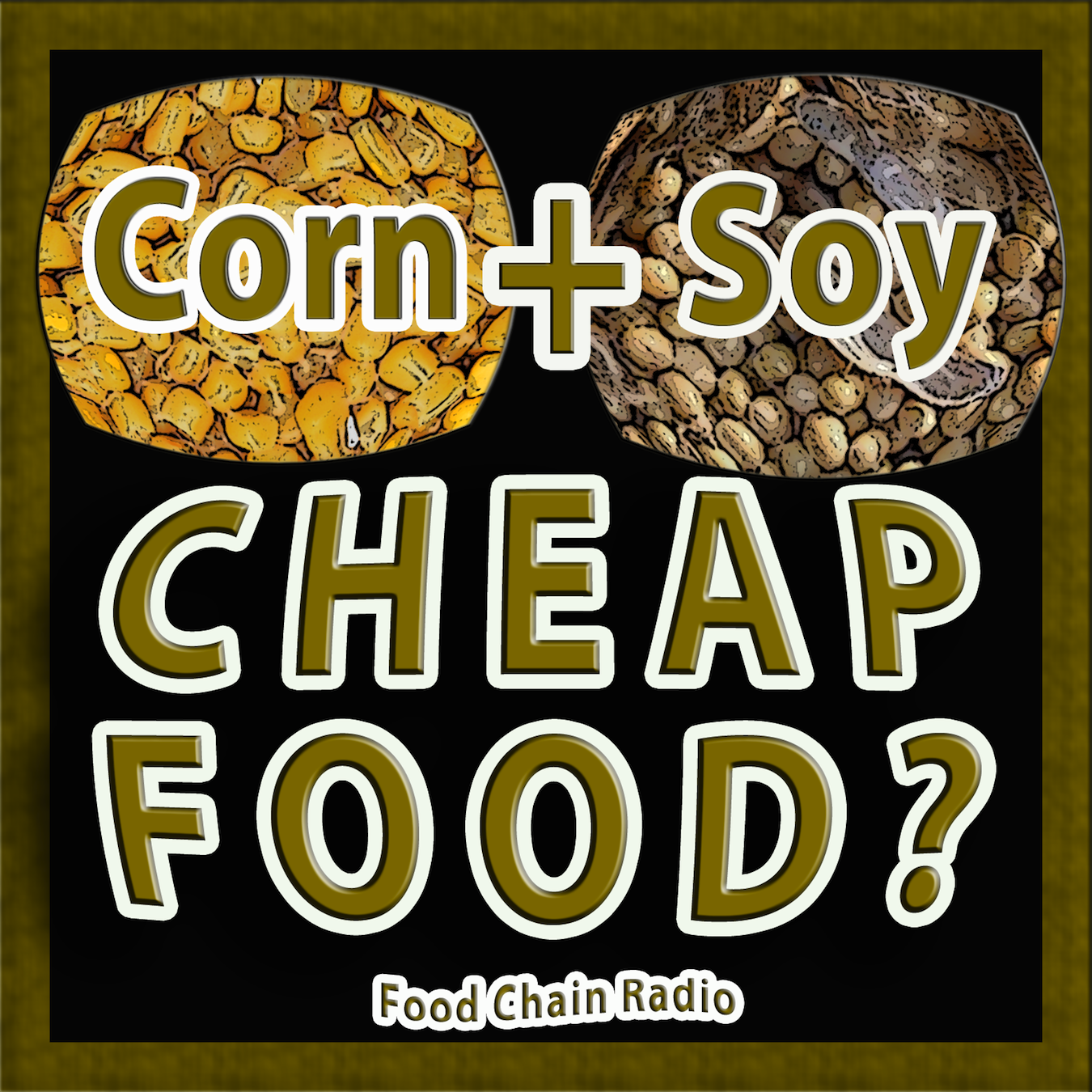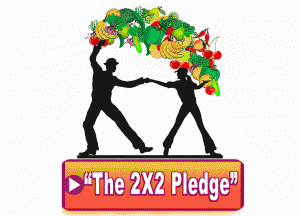
Pesticides
March 31, 2017
Food Fights and Culture Wars
April 13, 2017Food Chain Radio Show #1099
Michael Olson, Author & Urban Farming Agriculturalist
Cheap Food Isn’t
Guests: Professor Marion Nestle, author of Soda Politics, & Katy Keiffer, author of What’s the Matter with Meat
Why does the U.S. have such cheap food?

Michael Olson Food Chain Radio – Cheap “Food Isn’t!
I once went looking for the reason big farms could out compete little farms in the competition for consumer dollars.
“That’s a no-brainer,” I was told. “It’s the economies of scale.”
“And what are those economies of scale? “ I asked.
“Well,” came the reply, “suppose you have a 1-acre farm and I have a 1,000 acre farm, and one day we both go to town and buy a $10,000 tractor. That tractor is going to cost you $10,000 per acre, but its only going to cost me $10 per acre. Now, which one of us do you think is going to produce cheaper food?”
Economies of scale come into play every time a dollar is spent on the cost of doing business. The more acres one has, the less the cost per acre is going to be. But there is one cost of doing business where economies of scale are particularly effective.
A couple of years ago I received a phone call from an attorney specializing in ag-related legal issues. “Did you receive the letter?” he asked.
“What letter?” I answered.
“The one that said, ‘If local agriculture is taking a bite out of your profits, join us in Washington, DC.” He said.
Let’s see: If I have a one-acre farm, and he has a 1,000 acre farm, and one day we need to go to Washington, DC and spend $10,000 to fly a congress person to a golf game in Tahiti, that flight will cost me $10,000 per acre, but it will only cost him $10 per acre. Guess who is flying whom to Tahiti?
Now, let’s ask ourselves:
Leave a comment below: What can government do to help business produce cheap food?
Tune in here, for the syndicated Food Chain Radio Show #1099 April 8, 2017 Saturday 9AM Pacific





1 Comment
Cheap food isn’t.
The cost of food has been shifted from the supermarket to the gov’t/medical complex, which is tasked with curing all the illnesses that oversubsidized, undernourished, chemically treated food grown on overworked, depleted soil produces.
We need to do away with subsidies for corn, wheat and soybeans in particular, and all subsidies to farms over 100 acres in size and/or to corporations who lease more than 100 acres of ag land.
What began as a program to support the small farmer has been utterly perverted.